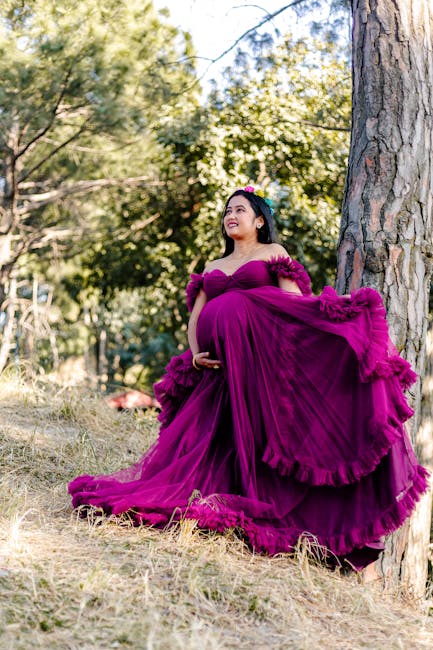Navigating Vaccine Recommendations During Pregnancy: A Guide for Expectant Mothers
Melissa, pregnant for the first time, reached out to MotherToBaby with a concern that many expectant mothers share: “Hi, I’m 29 weeks pregnant and wondering about vaccines. I have seen so many different things online and I am worried about getting really sick while I’m pregnant. Can you help?”
Melissa’s question is common. Many people seek the most up-to-date information about vaccines during pregnancy. Protecting yourself from circulating viruses is crucial, as infections such as influenza, pertussis, rubella, chicken pox, and COVID-19 can cause serious problems for both the pregnant individual and their developing baby. In light of August being National Immunization Awareness Month (NAIM), let’s explore the current recommendations.
Understanding Vaccine Safety During Pregnancy
It is important to know that some vaccines are not recommended during pregnancy, particularly “live” vaccines, which are made from viruses or bacteria that have been weakened but not killed. Due to the small chance that a live vaccine might cause the disease itself, these vaccines are typically avoided during pregnancy.
Your healthcare provider can help by measuring your titers (antibody levels in the blood) before pregnancy to ensure you have enough antibodies to protect against infections like measles, mumps, rubella, and chicken pox. If your titer levels are low, you can safely receive the necessary live vaccines before pregnancy. It’s advised to wait at least one month after vaccination before becoming pregnant.
Recommended Vaccines During Pregnancy
The Centers for Disease Control and Prevention (CDC) recommend that all pregnant individuals receive the influenza vaccine annually, the Tdap (tetanus, diphtheria, pertussis) vaccine during each pregnancy, and the most up-to-date COVID-19 vaccine. These vaccines are not live and have not been associated with an increased risk of birth defects or pregnancy complications. However, the live attenuated influenza vaccine, which is intranasal, is an exception.
The flu vaccine becomes available in September and is offered throughout the flu season. The CDC recommends getting vaccinated by the end of October. Immunization helps protect a pregnant woman before flu activity increases, with protection beginning about two weeks after the shot and lasting six to eight months. Vaccination during pregnancy may also protect your baby during the first six months of life, a critical period when they cannot receive the flu vaccine.
Tdap Vaccine Insights
Many expectant mothers, including Melissa, wonder if they need another Tdap vaccine if they had one recently. While adults are recommended to get a Tdap booster every 10 years, pregnant individuals should receive it during the 3rd trimester (27-36 weeks) to pass antibodies to the baby, providing protection against pertussis until the baby can be vaccinated.
COVID-19 Vaccination
Pregnant individuals are more susceptible to severe COVID-19 illness. Therefore, it is essential to receive COVID-19 vaccinations when due, at any stage of pregnancy. The CDC recommends staying up-to-date with the Pfizer-BioNTech or Moderna COVID-19 vaccines. Learn more here.
Travel Considerations
Summer often means travel, but it’s important to consider vaccine needs for your destination. Consult your healthcare provider about any specific travel vaccines you might need well ahead of your trip. For areas with a risk of Zika virus, which can harm the baby, avoid travel or take precautions like using recommended insect repellents.
Additional Precautionary Measures
Despite masks not being required in most places, they remain an effective way to reduce infection risk. Good hygiene, ventilation, and spending time outdoors can also help reduce risks.
After discussing her concerns, Melissa decided to schedule her COVID-19 and Tdap vaccines and plans to receive the flu vaccine as soon as it becomes available. She felt reassured, knowing she was taking steps to protect herself and her baby.
Do you have questions about vaccines during pregnancy? Reach out to MotherToBaby via call, chat, text, or email for personalized guidance.
For more information, visit: MotherToBaby Vaccine Fact Sheets | CDC Vaccine Guidelines




